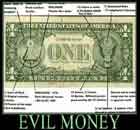Asia-Pacific
Remarks harmful to Sino-US ties
By Zhang Haizhou (China Daily)
Updated: 2010-01-25 09:46
 |
Large Medium Small |
But the on-going war of words likely to prove a storm in a teacup
Even though the Google case is just a "commercial matter", as Chinese officials have insisted repeatedly over the past few days, commentators say the issue has created problems for bilateral ties between China and the United States.
There have been suggestions that animosity could grow in the months ahead, although other commentators think the difficulties created by the Google case will only cause problems for the relationship over the short term.
US President Barack Obma continues to be "troubled by the cyber-security breach that Google attributes to China", a White House spokesman said on Saturday (Beijing time).
| ||||
The comments came just one day after US Secretary of State Hillary Clinton criticized Beijing over Internet censorship and urged China to investigate a wave of cyber attacks against Google.
The Internet and other technologies are critical to US foreign policy, and those who engage in cyber attacks should face international condemnation, she said.
Beijing has tried to play down the row with Washington over Google by saying it is just a legal matter. But a Foreign Ministry spokesman also described Clinton's speech as "remarks harmful to Sino-US ties".
Condemning China on the Internet issue may have become "a strategic and planned action" of the US government, said Yu Wanli, an analyst at Peking University.
It would affect Sino-US relations at large if the US tries to open a new front with China on the Internet, Yu pointed out.
Other commentators also believe the case will harm the Sino-US ties.
Obama's comments were "weighing into a burgeoning row that threatens to damage ties between Washington and Beijing", according to the London-based Financial Times.
"Obama promised last year to start a more conciliatory era in US-China relations, pushing human rights issues to the background, but the new criticism of China's Internet censorship and rising tensions over currency valuation and Taiwan arms sales indicate that animus could flare in the months ahead," said the New York Times.
Hong Kong-based Phoenix TV said "such kinds of friction" between China and the US were caused by the "fundamental ideological difference".
Still, the Times newspaper, in London, argued that the US-China relationship is "strong enough to withstand disputes like this".
Some Chinese analysts, like Shi Yinhong, an expert on Sino-US ties at the Renmin University, say the case would only cause short-term troubles for Beijing and Washington.
"This month is already more difficult than most of last year. But relations still have quite a strong basis and I think if it (the Google row) goes too far both sides will take measures to restrain developments," told Shi.
He described Clinton's speech as being "delivered for American public opinion ... The domestic situation is not very good."
But Shi also said the speech has left even "less room" for Google and the Chinese government to seek compromise or solutions.
Speaking before the foreign ministry statement, Niu Jun, an international studies expert at Peking University, told Reuters: "I think over the short haul (the Google issue) is going to go away because the other problems that the US and China face are rather numerous."
"I think economic and trade issues are still more important," Niu said, adding both sides will find a positive solution through talks.
"But this is not necessarily just a simple commercial issue. I don't know what the solution will be. But it won't take a long time."










